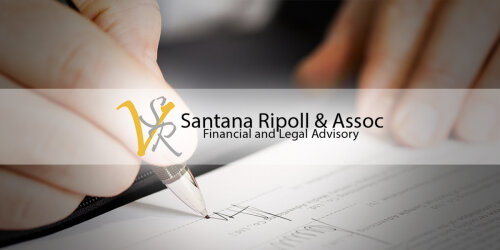Best Housing, Construction & Development Lawyers in Puerto Plata
Share your needs with us, get contacted by law firms.
Free. Takes 2 min.
Free Guide to Hiring a Real Estate Lawyer
List of the best lawyers in Puerto Plata, Dominican Republic
About Housing, Construction & Development Law in Puerto Plata, Dominican Republic
The field of Housing, Construction & Development in Puerto Plata, Dominican Republic, involves various legal frameworks governing the building, development, sale, and management of property. Puerto Plata, a well-known tourist and expat destination, has a dynamic real estate market fueled by beautiful beaches and a growing tourism industry. This has created demand in residential, commercial, and infrastructure development. Local laws aim to regulate land use, zoning, construction standards, and environmental impacts, ensuring sustainable growth while protecting property rights.
Why You May Need a Lawyer
Involvement in Housing, Construction & Development can lead to several scenarios where legal assistance might be necessary. These include:
- Negotiating real estate transactions or property disputes.
- Seeking permits and ensuring compliance with local zoning and building regulations.
- Addressing issues with construction contracts and resolving disputes with contractors or developers.
- Navigating property inheritance and title issues, particularly for foreign investors.
- Understanding tax obligations related to property ownership or development.
- Handling tenant and landlord disputes, including lease agreements and eviction procedures.
Local Laws Overview
Key aspects of local laws in Puerto Plata relevant to Housing, Construction & Development include:
- Urban Planning and Zoning: Laws regulate the use of land based on zoning classifications. Development plans must meet specific requirements and need approval from local authorities.
- Construction Regulations: National building codes set standards for safety, quality, and sustainability in construction projects, ensuring compliance is crucial.
- Property Ownership Laws: The Dominican Republic allows foreign ownership of property, but transactions must comply with local legal processes involving due diligence and registration.
- Environmental Regulations: Laws require Environmental Impact Assessments (EIAs) for projects that might affect ecosystems, particularly for those near coastal or protected areas.
- Housing Policies: Legislation aimed at improving housing affordability and quality, occasionally offering incentives for certain types of development.
Frequently Asked Questions
1. Can foreigners buy property in Puerto Plata?
Yes, foreigners can buy property in the Dominican Republic, including Puerto Plata, with the same rights as nationals. Legal guidance ensures proper compliance with the process.
2. What are the steps for obtaining a building permit?
To obtain a building permit, you must submit architectural plans, proof of land ownership, and environmental studies to the local government for approval. Hiring a local lawyer can streamline this process.
3. What should be included in a construction contract?
A construction contract should detail the scope of work, timelines, payment schedules, materials to be used, and terms for handling disputes. Legal advice can help protect your interests.
4. How are property taxes handled?
Property tax, known as Impuesto al Patrimonio Inmobiliario (IPI), is applicable annually. It's important to assess tax implications and ensure compliance.
5. What are the tenant's rights in Puerto Plata?
Tenants have rights to safe and habitable living conditions and protection against unlawful eviction. Lease agreements should clearly outline these rights and obligations.
6. How can I resolve a property dispute?
Property disputes can be resolved through negotiation, mediation, or court proceedings. A lawyer can help you choose the best strategy and represent your interests.
7. Are there incentives for sustainable or affordable housing projects?
The government occasionally offers incentives for developments that promote sustainability or affordability, such as tax breaks or financing options.
8. What documents are required for a real estate transaction?
Key documents include a sale agreement, title deed, cadastral certificate, and identification. Legal counsel ensures proper documentation and compliance.
9. How do inheritance laws affect property in the Dominican Republic?
Inheritance laws can be complex, affecting property transfer upon death. Legal guidance is recommended, especially for non-residents.
10. What should I do if a contractor fails to complete a project?
If a contractor fails to fulfill obligations, legal action may be necessary. Contracts should outline dispute resolution mechanisms to address such issues.
Additional Resources
For further assistance, consider reaching out to the following resources:
- Ministry of Public Works and Communications - Oversees construction regulations.
- General Directorate of Internal Taxes (DGII) - Handles property taxes.
- Superintendency of Banks - Provides information on mortgages and property financing.
- Association of Real Estate Agents and Companies - Can connect you with licensed professionals.
Next Steps
If you require legal assistance in Housing, Construction & Development, take these steps:
- Consult with a local real estate lawyer experienced in Dominican Republic law.
- Gather all relevant documents related to your case or transaction.
- Consider language barriers and seek bilingual legal services if necessary.
- Be aware of legal fees and discuss payment structures with your lawyer in advance.
- Stay informed about local housing market trends and regulatory updates.
Lawzana helps you find the best lawyers and law firms in Puerto Plata through a curated and pre-screened list of qualified legal professionals. Our platform offers rankings and detailed profiles of attorneys and law firms, allowing you to compare based on practice areas, including Housing, Construction & Development, experience, and client feedback.
Each profile includes a description of the firm's areas of practice, client reviews, team members and partners, year of establishment, spoken languages, office locations, contact information, social media presence, and any published articles or resources. Most firms on our platform speak English and are experienced in both local and international legal matters.
Get a quote from top-rated law firms in Puerto Plata, Dominican Republic — quickly, securely, and without unnecessary hassle.
Disclaimer:
The information provided on this page is for general informational purposes only and does not constitute legal advice. While we strive to ensure the accuracy and relevance of the content, legal information may change over time, and interpretations of the law can vary. You should always consult with a qualified legal professional for advice specific to your situation.
We disclaim all liability for actions taken or not taken based on the content of this page. If you believe any information is incorrect or outdated, please contact us, and we will review and update it where appropriate.









